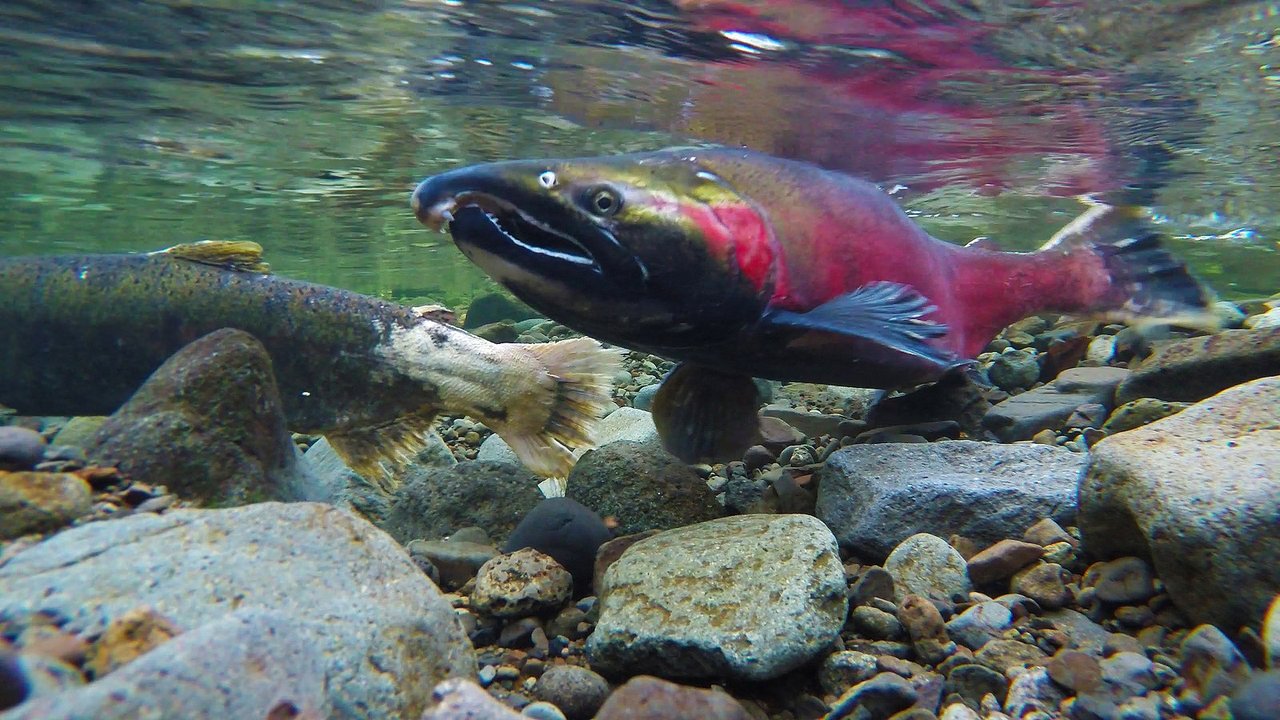Wild salmon are an economic engine that we believe is the cornerstone of sustainable development in Cascadia. These sea-going golden retrievers bring the wealth of the ocean home every year — sustainably generating jobs for independent fishermen, food for the world, to say nothing of being our ecological keystone species.
Commercial fish farming interests have applied to allow commercial sale of Atlantic salmon with king salmon genes spliced into their DNA to make them grow faster. The Food & Drug Administration has preliminarily granted approval, finding "no significant impact." If granted, this would be the first genetically modified animal approved for human consumption. Because current regulations do not address the unique issues of genetically-modified food, they would be sold without labeling, undermining the high-value Alaska wild salmon markets and diminishing incentives to protect wild stocks and habitats. This alien life form is fully capable of collapsing critical food webs should they be accidentally or purposely released in the wild.
Our goal is to ensure "Frankenfish" never see the light of day, and that, if they do, wild fish markets are protected by mandatory labeling of genetically modified salmon. Situated in the heart of wild salmon territory, we can add a powerful grassroots pressure point by those who have the most to lose. Our effort is closely aligned with national legal and advocacy efforts of groups like Earthjustice and Friends of the Earth.
The FDA's recent decision is based on the preposterous claim that there is no difference between AquaBounty Technologies Inc.’s Frankenfish and natural salmon, and no risk whatever of any environmental impacts. Objections span the ideological spectrum:
- Food safety advocates say GE Fish pose higher risk of allergic reactions, contain larger quantities of cancer-causing chemicals, and offer fewer health benefits than natural fish;
- Commercial fishing organizations and economists fear the economic and social consequences of flooding the market with cheap, unlabeled GE fish;
- Consumer advocates object to the lack of labeling (they’d be sold as “Atlantic Salmon”);
- Environmentalists fear escaped GE Fish could interbreed with wild salmon, , decimating populations and unleashing a cascade of harmful ecological interactions;
- Moral objections are raised by those who see genetic engineering of animals as the ultimate human hubris;
- Cultural objections are raised by indigenous peoples, for whom Atlantic and King salmon are sacred.
- Policy-makers and academics point out the current regulatory system (it falls under “new animal drug” regulations so decisions are made by veterinarians) is totally ill-equipped to handle GE fish.
Worst of all, the FDA is making this decision blind, without careful consideration of environmental, economic and social effects. Cascadians need to stand up now in defense of our wild salmon heritage. Your voice can a difference.
The public comment period has closed. A decision is expected from FDA any time (and has been for a long time).
In the meantime, the markets campaign has taken off. With lots of help from local allies like Mountain Rose Herbs, and in collaboration with the excellent efforts of Friends of the Earth and others back east, several thousand grocery stores have pledged not to sell AquaAdvantage Salmon, even if they are approved for market. A big step was taken recently when Kroger & Safeway, the two largest grocers, joined the pledge.
For more information:
Read the environmental assessment and FDA’s background materials here.
The Ocean Conservancy's infographic
NPR Science Friday episode exploring the issue
AquaBounty’s website
(Spawning salmon in BC. Photo source unknown.)

